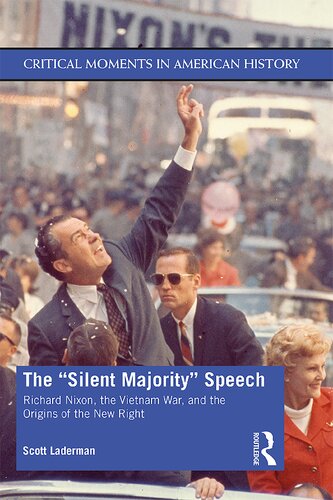

Most ebook files are in PDF format, so you can easily read them using various software such as Foxit Reader or directly on the Google Chrome browser.
Some ebook files are released by publishers in other formats such as .awz, .mobi, .epub, .fb2, etc. You may need to install specific software to read these formats on mobile/PC, such as Calibre.
Please read the tutorial at this link: https://ebookbell.com/faq
We offer FREE conversion to the popular formats you request; however, this may take some time. Therefore, right after payment, please email us, and we will try to provide the service as quickly as possible.
For some exceptional file formats or broken links (if any), please refrain from opening any disputes. Instead, email us first, and we will try to assist within a maximum of 6 hours.
EbookBell Team

4.0
96 reviewsThe "Silent Majority" Speech treats Richard Nixon’s address of November 3, 1969, as a lens through which to examine the latter years of the Vietnam War and their significance to U.S. global power and American domestic life.
The book uses Nixon’s speech – which introduced the policy of "Vietnamization" and cited the so-called bloodbath theory as a justification for continued U.S. involvement in Southeast Asia – as a fascinating moment around which to build an analysis of the last years of the war. For Nixon’s strategy to be successful, he requested the support of what he called the "great silent majority," a term that continues to resonate in American political culture. Scott Laderman moves beyond the war’s final years to address the administration’s hypocritical exploitation of moral rhetoric and its stoking of social divisiveness to achieve policy aims. Laderman explores the antiwar and pro-war movements, the shattering of the liberal consensus, and the stirrings of the right-wing resurgence that would come to define American politics.
Supplemental primary sources make this book an ideal tool for introducing students to historical research. The "Silent Majority" Speech is critical reading for those studying American political history and U.S.–Asian/Southeast Asian relations.